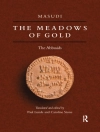Frances Burney’s 'The Collected Works of Fanny Burney’ encompasses a significant body of her literary output, showcasing her remarkable contribution to the evolution of the British novel in the late 18th century. With a keen observational style and incisive social commentary, Burney delves into themes of female identity, societal expectations, and the intricacies of human relationships. The compilation includes her renowned novels, diary entries, and letters, all of which are imbued with wit and a nuanced understanding of her contemporary world, thus contextualizing her work within the burgeoning feminist discourse of her time. Frances Burney (1752-1840) was not just a novelist but a pioneering figure in literary history who influenced contemporary authors such as Jane Austen and Charles Dickens. Her own experiences as a woman navigating the literary landscape of a patriarchal society provided her with unique insights into the complexities of gender roles. Burney’s meticulous attention to character development and her autobiographical reflections reveal her struggles and triumphs, shaping her narrative style into one that resonates with authenticity and emotional depth. This collected volume is essential for anyone interested in the roots of the modern novel and the evolution of women’s writing. Readers will find Burney’s work both engaging and enlightening, offering profound reflections on the societal norms of her era while remaining strikingly relevant today. Scholars, students, and lovers of literature will appreciate its rich historical context and the insight it provides into Burney’s life and legacy.
O autorze
Frances Burney (1752–1840), also known as Fanny Burney, was a distinguished English novelist, diarist, and playwright, celebrated for her satirical wit, keen observations, and the unique perspective that she brought to female literature in the late 18th and early 19th centuries. Her novels are characterised by their vivid detail, comedic elements, and the direct examination of the lives of women in her time, including the constraints of middle and upper-middle-class society. Burney’s first novel, 'Evelina; Or, The History of a Young Lady’s Entrance into the World’ (1778), published anonymously, received critical acclaim for its rich depiction of social manners and its pioneering portrayal of domestic realism. She continued her foray into the literary setting with novels such as 'Cecilia’ (1782), 'Camilla’ (1796), and 'The Wanderer’ (1814). Her plays and satires added to her reputation, although they were not as well-known as her novels. 'The Collected Works of Fanny Burney’ encompasses her extensive oeuvre, capturing her unique narrative voice and offering valuable insights into the socio-cultural dynamics of the Georgian era. Burney’s influence extended to later writers, including Jane Austen and Virginia Woolf, and her diaries and letters provide an outstandingly detailed record of the literary, artistic and social milieu that she navigated. As an author, Burney stands as a monumental figure in English literature, framing the female experience with a mix of tenderness, irony, and piercing social commentary.












